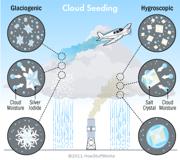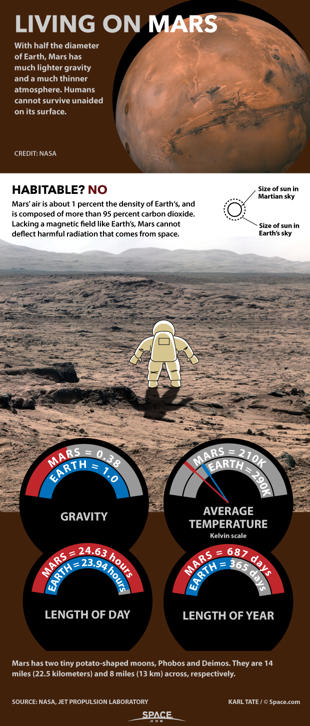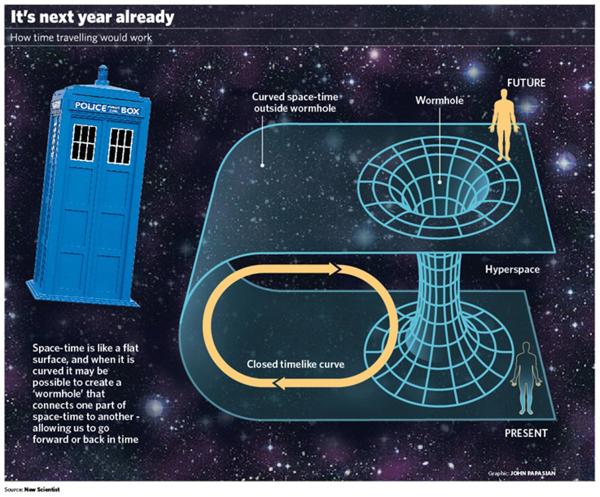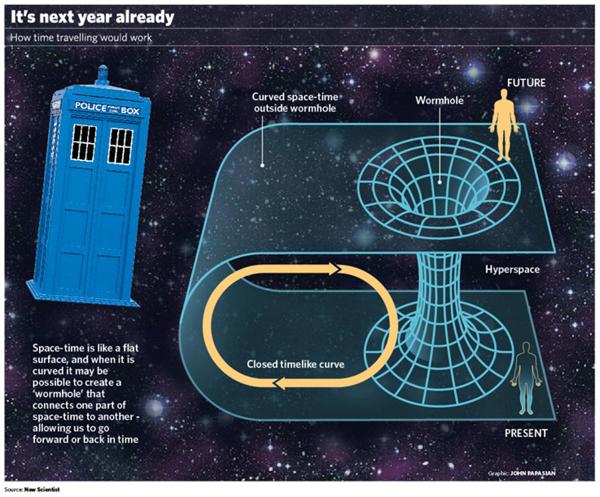Can Humans Survive on Mars Without Life Support?
Exploring Human Survival on Mars: The Challenges of Life Without Life Support Systems
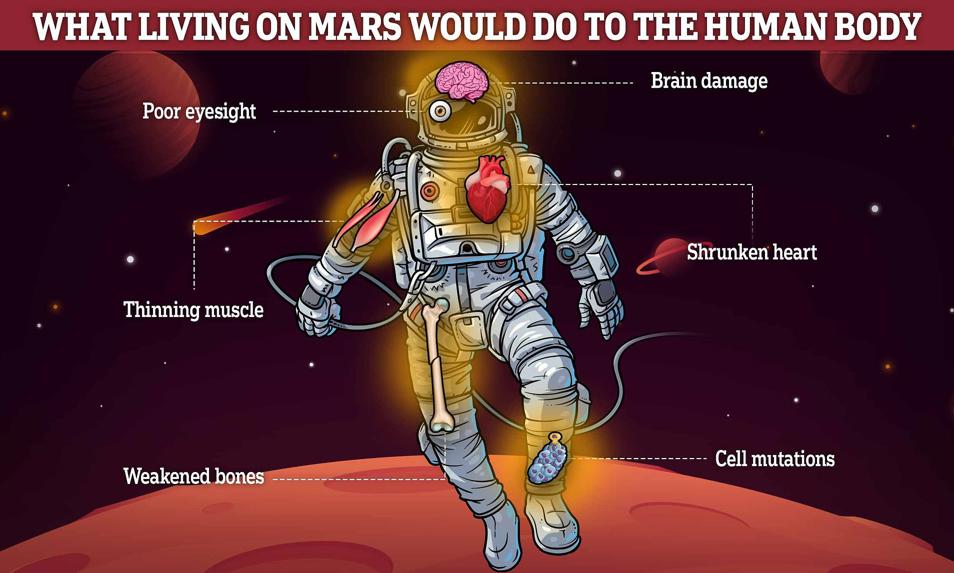
Frequently Asked Questions
The main challenges include the lack of breathable atmosphere, extreme cold temperatures, high radiation levels, scarcity of liquid water, and absence of natural food sources.
No, humans cannot adapt to live on Mars without life support systems due to the planet's inhospitable conditions, which do not support human life.
Step by Step Guide
1
Understanding Mars Environment
Mars is a cold, barren planet with thin atmosphere. Its surface conditions include temperatures dropping to -80 degrees Fahrenheit (-62 degrees Celsius) and low atmospheric pressure, which is less than 1% of Earth's. There is also high radiation exposure due to lack of a magnetic field.
2
Examining Human Needs
Humans require specific conditions to survive: breathable air, adequate temperature, pressure, water, nutrients, and protection from radiation. Without life support, these conditions are not naturally present on Mars.
3
Analyzing Mars's Atmosphere
Mars's atmosphere consists of 95.3% carbon dioxide, 2.7% nitrogen, and only trace amounts of oxygen (0.13%), making it unsuitable for human respiration. This situation necessitates specialized life support technologies or habitats.
4
Assessing Temperature Extremes
With temperatures frequently dropping below freezing, humans would need insulated habitats or spacesuits to prevent hypothermia and maintain a livable inner temperature.
5
Investigating Radiation Risks
Mars lacks a protective magnetic field, exposing its surface to higher levels of cosmic and solar radiation, which can lead to health risks such as cancer. This hazard necessitates the use of shelters or habitats to protect humans.
6
Identifying Water Sources
Liquid water is crucial for human survival, yet it is scarce on Mars. Humans would need technologies to extract water from ice or the atmosphere, which life support systems would facilitate.
7
Evaluating Nutritional Needs
Sustaining human life requires a reliable source of food. Mars's harsh environment prevents natural agricultural growth, thus necessitating systems for food production such as hydroponics or sustainable food supplies.
8
Concluding the Feasibility
Given Mars's atmosphere, temperature conditions, radiation levels, and resource availability, humans cannot survive on Mars without life support systems to provide necessary conditions, protection, and resources.




